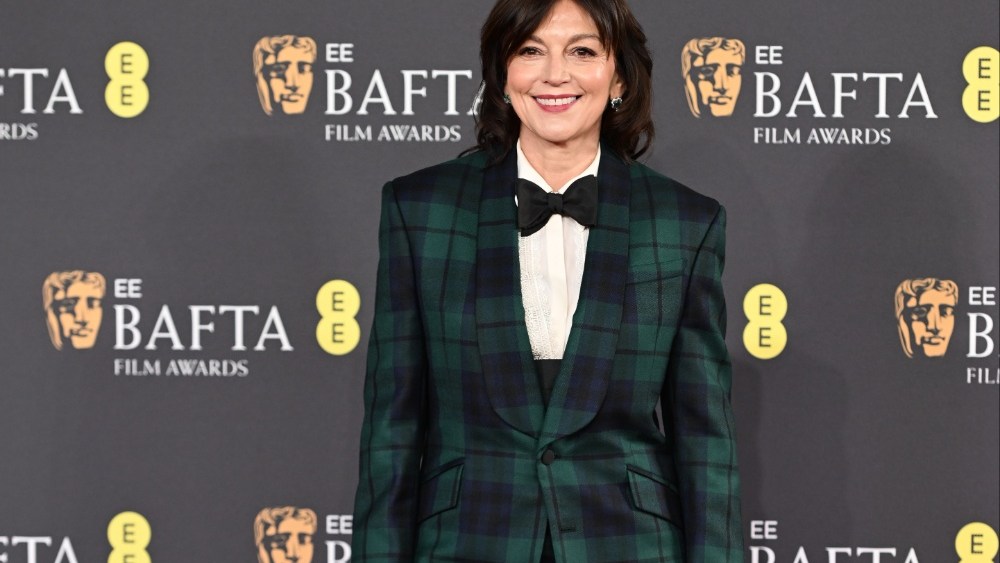BAFTA Chief Addresses British TV Crisis
Jane Millichip, CEO of BAFTA, has expressed confidence in the resilience of British television despite recent industry challenges, describing the creative and craft quality of U.K. TV as being at “the highest it’s ever been.”
Speaking after the announcement of the BAFTA TV and Craft nominations, which saw Netflix’s “Baby Reindeer” leading with eight nods, Millichip addressed concerns about what some have labeled a crisis in British television production, especially in the scripted space.
“Notwithstanding the fact that we’ve had a tough market for the last year or so, this year’s nominees show that creatively and craft wise, British TV is in rude health,” Millichip told Variety. “The quality of the nominations is extraordinary, and a lot of brilliant TV didn’t get nominated. We have 134 nominated programs out of 900 entries.”
The BAFTA TV Awards nominations saw “Baby Reindeer” dominate, while ITV’s “Mr. Bates vs. the Post Office,” Disney+’s Jilly Cooper adaptation “Rivals,” and Apple TV+’s “Slow Horses” tied for second place with six nominations each. Disney+ also earned four nominations for its IRA drama “Say Nothing.”
Millichip pointed to recent industry data suggesting potential improvement in the production landscape “that seems to be showing green shoots of recovery. About a third of independent producers in the U.K. are seeing a little bit of an upside return to better commissioning landscape.”
The BAFTA chief underscored the importance of maintaining control of the U.K.’s production value chain while acknowledging the benefits of international investment.
“I’m the first person to celebrate the fact that U.S. studios have been coming to the U.K. to produce both film and TV for many years now, and that’s been brilliant,” she noted. “What we need to ensure, however, is that we don’t lose control of the value chain in the U.K.”
Millichip highlighted the need for a multi-faceted approach to strengthening domestic production, including evaluating proposals related to tax credits, levies, and support for domestic freelancers. “There’s no silver bullet to this,” she said. “The most important thing is to ensure that we have a strong domestic sector, and that we retain more of the IP value in our own productions.”
She added that a robust domestic sector provides resilience when international investment fluctuates: “When you have a strong domestic sector, if America has to pull the belt in for some reason, we have more resilience to continue with our own domestic sector. And that’s really important for domestic storytelling, British storytelling as well.”
Discussing the digital landscape, Millichip celebrated the success of streaming shows like Netflix’s “Adolescence,” which recently became the first streaming program to top the British weekly television chart. She praised the broad adoption of public service broadcasting values across the industry.
“I’m delighted to see fantastically British stories being told, not just across the U.K. PSBs, but also across the streamers,” she said, citing examples including “Say Nothing” and “Toxic Town,” both nominated at this year’s BAFTAs.
Millichip specifically praised “Mr. Bates vs. the Post Office,” noting: “The writers, the producers, ITV, took huge risks from that show in the knowledge that it probably wouldn’t sell dramatically across the world. It is a story of fantastic human endeavor, and it’s a story about justice, and that has absolute, universal appeal.”
On the introduction of new children’s categories to the BAFTA awards, Millichip explained this was part of an effort to better support a sector facing funding challenges.
“We want to support the children’s sector, and we know it’s been quite difficult for a few years now to fund children’s programming,” she said. “It’s really important to us that we see it as a vital part of the TV landscape.”
BAFTA has created scripted and non-scripted categories and a craft team category in the TV craft awards for children’s programming. “For us, it was really about putting children’s TV on the main stage, metaphorically and literally,” Millichip concluded.


